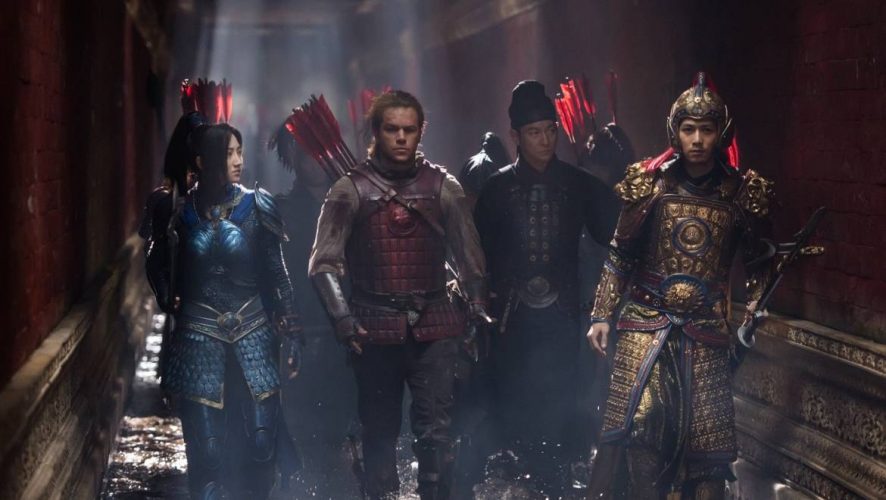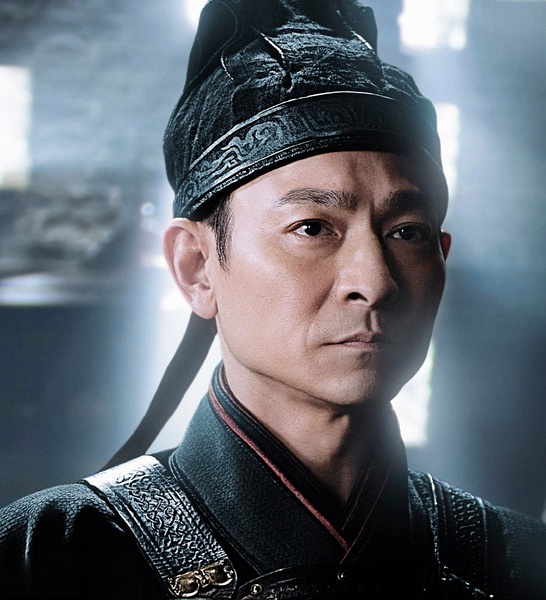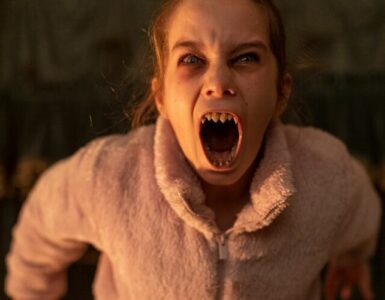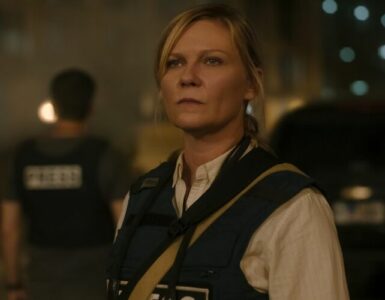- Shares
- 40
It seems almost impossible for a film critic to review Legendary Pictures’ The Great Wall, without addressing the controversy of whitewashing, and charges against Hollywood as an institution for a poor record in championing diversity (The Hollywood Reporter review, being the exception).
As far as diversity is concerned, I applaud Legendary in its collaboration with critically acclaimed Mainland China director Zhang Yimou. It is an inclusion of a different perspective, and as far as China/Hollywood co-productions go, it has been most inclusive of different talents of different backgrounds, both behind, and in-front of the camera.
In interviews with the Chinese press, Zhang Yimou has stated that he set out to make a Hollywood movie. Hollywood has to be willing to take responsibility that institutionally, they pioneered a certain type of narrative to be told across a global platform.
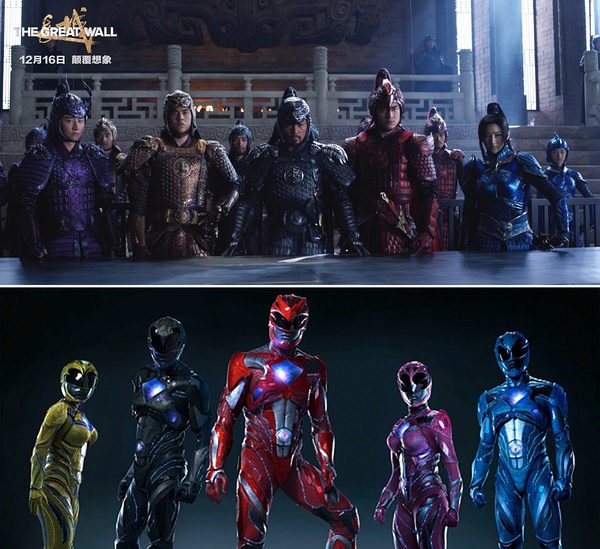
To the continued dismay of people of color in the film industry, Hollywood has made a booming business from the archetypal white narrative worldwide. I don’t find it strange or even offensive that Zhang Yimou wanted to undertake that narrative, as the white savior narrative is representative of Hollywood storytelling.
This choice may be surprising to some who might believe that Zhang Yimou is a social issue, rebellious filmmaker, but I do think there is a body of work that contravenes that image especially if you take his work in contrast against the body of work by China’s sixth generation of directors. Director Zhang has always been stubbornly true to his own artistic vision, and he set off to try to conquer a different genre, and a movie of greater scale.
The reviews I have read that want to step away from calling this a “hero” movie seem to want to do so because they don’t want the social critics to be right about “whitewashing”.
Maggie Lee, Variety’s Chief Asian Film Critic tells her readers that “those who ranted against the project as another case of Hollywood ‘whitewashing’ in which Matt Damon saves China from dragons may have to bite their tongue”, and Helen Roxburgh at the Guardian triumphantly claims “earlier allegations of ‘whitewashing’ seem, in the main, unfounded”.

Both reviewers cite flaws in the mercenary, William Garin (played by Matt Damon), as grounds for why this story could not fall into the whitewashing category. But character development isn’t an exception to the white savior trope, and it doesn’t absolve the creative leadership, regardless of their ethnicity or country of origin, from relying on this tried and true narrative device.
Other reviews, like the one found on this very site, takes a different tact by advocating that this movie is a movie with an ensemble cast, versus a lone-hero movie. But I find the term “ensemble” to be poorly applied in this case. To me, an ensemble cast is “made up of cast members in which the principal actors or performers are assigned roughly equal amounts of importance and screen time in a production.”
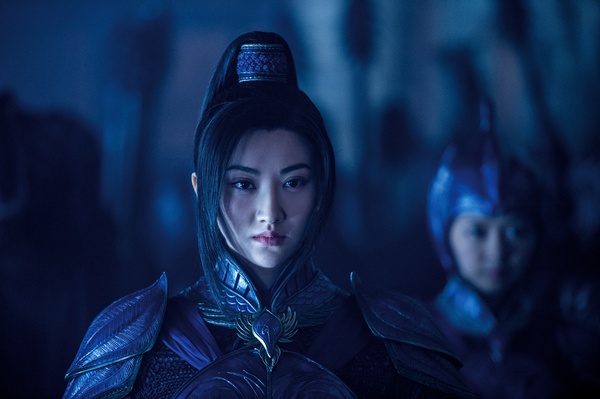
Even if you take this as a two part either/or test, I find it highly contestable that any other character besides William Garin and Lin Mei (as played by Jing Tian) played any great importance in the film. Even among the criticisms of the movie by Gerald (Geek Culture) and Variety, they feature complaints about how the Chinese actors in the movie were diminished to “glorified cameos” and “end up looking like cardboard cut-outs with no emotional dimension”.
Or as Gerald’s review observed “[o]ne glaring concern of The Great Wall would be the use, or lack thereof, of all the commanders from the Nameless Order (Zhang Hanyu, Lin Gengxin, Eddie Peng, Huang Xuan), who seem to have been shelved aside in favor of Tian Jing.”
I would note that Gerald seems to think that if by taking away time from Jing Tian, that this would a more balanced movie. But Jing Tian’s presence in the movie, and the storyline of the character is more supportive of his contention that this is an ensemble movie. I think describing this movie as an ensemble movie actually holds Director Zhang to a higher standard that he didn’t intend to undertake, for surely he fails to properly devote time and story to the all-star Chinese cast he secured for the film.
But as a hero movie, where the hero is obviously Garin, Director Zhang is on more assured footing, as he certainly has drawn out a silhouette of a redemptive character in this greed-driven mercenary. I personally found the journey to be unconvincing, and missing a few beats that would really drive the emotional undertones for Garin to find something to believe in. It is also not Damon’s best performance, as he bumbled through a variety of accents and seemed too earnest and polite with his Chinese captors from the beginning, to make his redemption interesting. Damon felt more comfortable in the role when he shared the screen with Pedro Pascal who played rascally companion Pero Tovar, who provided some much needed, albeit corny, levity throughout the movie.
It was hard to evaluate the performances of any other actor besides Jing Tian, given what little screen time was squeezed in for them. Director Zhang’s use of static close-ups were very unforgiving to Jing Tian’s slow cadence in English, which she may have chosen to deliver to us, and favored clarity over displaying any emotion.
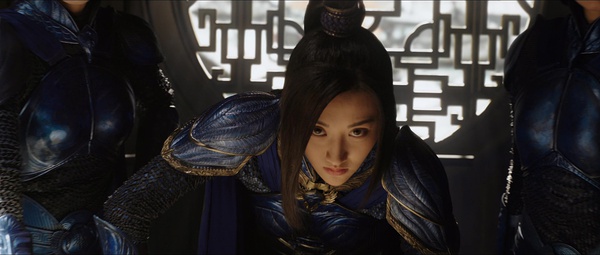
In interviews promoting the film, Director Zhang found inspiration in the character Mulan and Mu Guiying, both famous female warriors in Chinese folklore, for Commander Lin Mei. It was a conscientious decision to veer away from a token romance resulting in defining a different type of female lead.
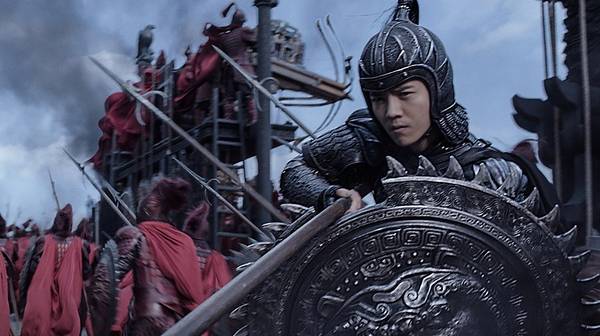
Lu Han probably had the most compelling storyline, and delivered a genuine, wide-eyed performance as a young soldier struggling to find courage and a place in the elite army. My complaint with his place in the story in relation to Garin is similar to that of Garin’s relationship to the rest of the cast: the scenes were so minimal and rushed, in favor of epic battle scenes and grand displays of ingenuity by the Chinese during the Song Dynasty, that the emotional impact from the choices of the characters, especially the Chinese characters, fell flat.
Even Asian superstar Andy Lau was sidelined as a character, with his own compelling character arc. He was limited to giving long, narrative explanations about what was going on with the alien monsters, and the state of the Chinese Empire. We barely get to meet Zhang Hanyu as the general, before he makes room for the ascendancy of Commander Lin Mei to General Lin Mei.
As observed by others, the other commanders weren’t given much place in the story and action against the triumph over the monsters. Even Willem Dafoe played an odd character, whose main purpose seemed to be providing a reason as to why Strategist Wang and Lin Mei can speak English.
The greatest disappointments in character building were really the monsters. Their presence was very matter-of-fact and sanitized. And beyond the gruesome violence that was displayed too stylistically to be uncomfortable with, Director Zhang didn’t make any room for tension or suspense in the alien monster’s plan, to invade China via the Great Wall.
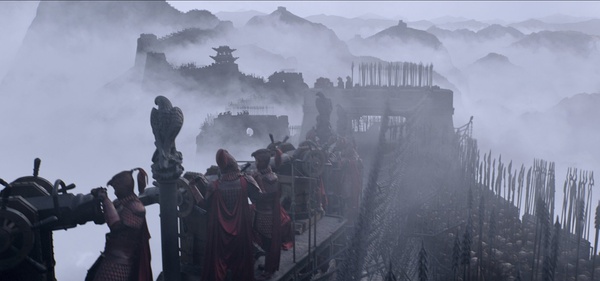
Visually we definitely see Director Zhang’s strength, flawlessly aided in the visual effects done by the team at ILM. The battle scenes were breathtaking, like watching war paintings come alive. He has certainly brought forth a monster movie we have not seen before, but he didn’t stay true to the elements that make this film so popular. In expanding to include a different voice in Hollywood, we may not have been delivered something greater, but just something that looks a little different from what we’re used to.
Jamie is an American living in Asia producing co-production features and content for China.

